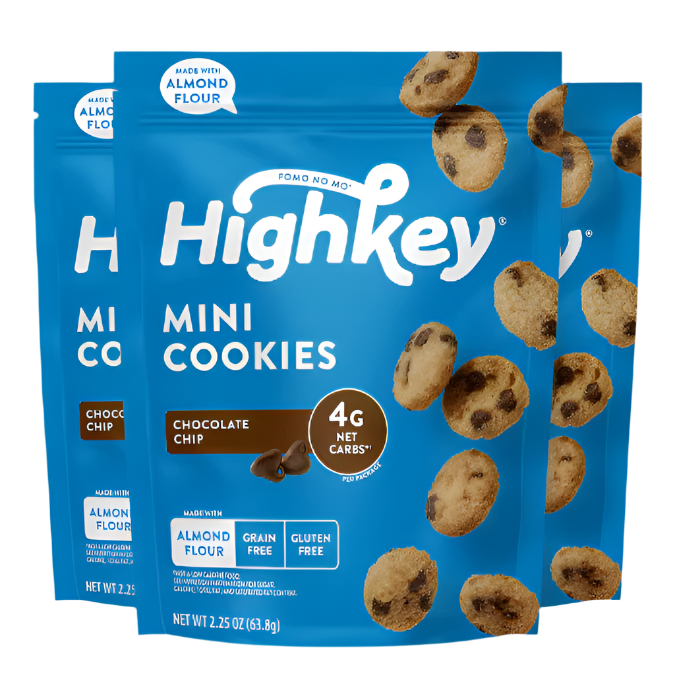Intuitive Eating: What Is It, Weight Loss, & Principles
Intuitive Eating: What Is It, Weight Loss, & Principles
Elijah Morman
8 - 10 MIN.
Following a gluten-free diet can be difficult. Limited options have you sacrificing convenience and taste. Our mission is to deliver better-for-you snacks that taste just as good as the original Go ahead...snack again! Try our most popular Gluten-Free products!
What Is Intuitive Eating?
10-16-20
What are the Principles of Intuitive Eating?
The principles of intuitive eating are based on working to break down dieting cycles to reconnect and listen to the body’s natural signals regarding food. Here are the 10 key principles of intuitive eating:
#1 Reject the Diet Mentality
The first principle for intuitive eating is to reject the system of dieting and the mentality that goes with it. You don’t need to diet. If none of them work for you, don’t do them. It doesn’t mean that you have failed, it means that there was a flaw in the diet and it doesn’t work for everyone.
#2 Honor Your Hunger
This principle focuses on listening to what your body wants. Eat when your body tells you that it is hungry and stop when you’re full. Food gives you fuel to get through the day so you need to eat an adequate amount to give your body the energy it needs to function properly.
#3 Make Peace with Food
You don’t need to feel guilty about certain foods. In fact, the reason we feel guilty about those foods is because of the restrictive diets we have tried before. Eat what you actually want. You may find that when foods are not ‘forbidden’ they no longer seem so appealing anyway.
#4 Challenge the ‘Food Police’
Don’t feel guilty about eating ‘unhealthy’ foods. Shake that voice in your head that is telling you you’re being good for eating some foods and bad for eating others. Making choices about what you eat does not need to be a moral issue.
#5 Respect Your Fullness
Pause when you’re eating to gauge how full you are, then stop when you feel comfortably full - it’s ok to leave food on your plate!
#6 Discover the Satisfaction Factor
Take time to appreciate your food, you will enjoy it more and feel more satisfied. There are studies that show that people who do other things at the same time as eating tend to overeat, not realizing that they are already full. Fully concentrating on your food means that you can feel satisfied sooner, and you will notice when you have eaten just the right amount for your hunger level.
#7 Honor Your Feelings Without Using Food
If you use food to deal with your negative emotions, such as stress, anxiety, sadness, boredom, or loneliness, find another way to deal with them - take a walk, go for a drive, meditate. Using food to provide yourself with comfort can often make you feel worse and fill you with shame, particularly if your negative feelings led to overeating.
#8 Respect Your Body
Accept the way your body looks. No two people are the same and you shouldn’t have unrealistic expectations for what your body should look like. When you live a healthy lifestyle, with adequate food intake, exercise, and a good sleep pattern, your weight will be maintained at the weight that is right for your body.
#9 Exercise
Exercise in a way you actually enjoy - don’t do something just because you feel like you have to in order to lose weight. When people exercise to lose weight it often becomes an obsession or it feels like a chore. Exercising for fun means that, not only will your body be cared for, you will actually enjoy moving your body!
#10 Honor Your Health
The last principle of intuitive eating is to honor your health with gentle nutrition. It is important to repair your relationship with food, otherwise, this principle can lead to that diet mentality once again. This is an opportunity to look at your eating habits but not beat yourself up about them. Having a meal, or a day, of less nutritious foods doesn’t make you unhealthy, but it is good to find those foods that are both nutritious and tasty. You should think about how different foods make you feel and if they will help you work towards your health goals.
Intuitive Eating Tips
Once you’re following the principles outlined above, here are some tips to help you intuitively eat right:
- Make sure you drink enough – it’s easy to focus too much on food when you’re “allowed” to eat whenever you like, but try to be aware that sometimes we interpret thirst as hunger. Often by the time we feel real thirst, we’re already dehydrated, so make sure you’re drinking enough.
- Don’t deprive yourself of calories – if you allow weight loss to be your motivation, it’s very unlikely that you will give your body the calories it needs to gain enough energy for daily life and biological processes.
- Don’t think about foods as either “good” or “bad” – this is what gives you a sense of guilt and it’s like the food has power over you.
- Adopt good sleep patterns – the amount of sleep we get is directly related to our energy levels for the following day, and therefore how hungry we will be. Getting 7-8 hours of sleep every night will ensure that our energy levels are increased enough that we rely less on food to give us all the energy we need for the day ahead.
Can You Lose Weight on Intuitive Eating?
Intuitive eating does not promise weight loss as there are no specific rules to be followed. It is up to you to make choices for your own personal health goals. For some, listening to their own body’s hunger cues will help them lose weight as it helps to avoid overeating, but this isn’t the case for everyone.
So far, studies have shown that intuitive eating encourages better psychological attitudes, a lower body mass index (BMI) and helps to maintain weight, however, not necessarily actually losing weight. With that being said, it is important to remember that all bodies are different and respond to food habits in different ways. Acceptance of your own body is the most important thing!
Does Intuitive Eating Actually Work?
Although you may not lose weight with intuitive eating, it is very beneficial to psychological health. Intuitive eating encourages people to accept their bodies in their most natural state and boost their self-esteem. Losing that feeling of guilt or failure when you eat something classed as ‘unhealthy’ is important for allowing you to feel good about yourself.
Intuitive eating is proven to increase well-being, promote optimism, allow you to eat a wider variety of foods, and, therefore, a wider variety of nutrients, works towards good cholesterol levels, increases awareness of body cues, and lead to self-acceptance.
Unlike dieting, intuitive eating actually works to improve both your physical and mental health for the long term so that you can live a much happier life.
Of course, if you have little self-control and eat when you aren’t hungry or to fill an emotional need, then it won’t work. If this is the case, it’s best to work on those issues first before returning to intuitive eating.
What is the Intuitive Eating Hunger Scale?
The intuitive eating hunger scale helps you to understand how hungry or full you are so that you can better regulate your body’s energy levels. It aims to prevent you from feeling uncomfortably hungry or uncomfortably full whilst giving your body it needs to function as it should day-to-day. The intuitive eating hunger scale is as follows:
- Empty: dizziness, feeling physically sick, difficulty concentrating
- Very hungry: moodiness, headache
- Hungry: feeling hunger pains, lack of energy
- Slight hunger: stomach growls
- Neutral: neither hungry nor full, sufficient energy levels
- Satisfied: no hunger cues
- Slightly uncomfortable
- Stuffed: bloating
- Uncomfortable: lethargy
- Overstuffed: feeling sick
Learning to understand where you are on the hunger scale can help you to re-connect with your body and acknowledge it’s specific hunger cues. In this way, you will know when your body wants food to refuel or is satisfied after eating to avoid any extremes. There is never a good reason to let yourself feel sick!
Will I Gain Weight On Intuitive Eating?
The truth is, you might gain weight, you might lose weight, or you might maintain your current weight. Intuitive eating is all about trusting your body, that it knows what you need.
If you eat (largely) healthy foods intuitively and are currently overweight, you will likely see weight loss as you will find you need less food to feel full than you thought. If you have a ferocious appetite and eat calorie-rich foods often, you may see weight gain. Of course, it all depends on your body and how you choose to eat!
Elijah Morman
Elijah Morman is a freelance copy and content writer. He lives in West Fargo ND, with his wife and their two little girls. Passionate about living life to the fullest, Elijah realizes that that process starts with the body and his health and wellness. He desires that through his writing, he can inspire others to take better care of themselves and in turn live their life more fully as well!


